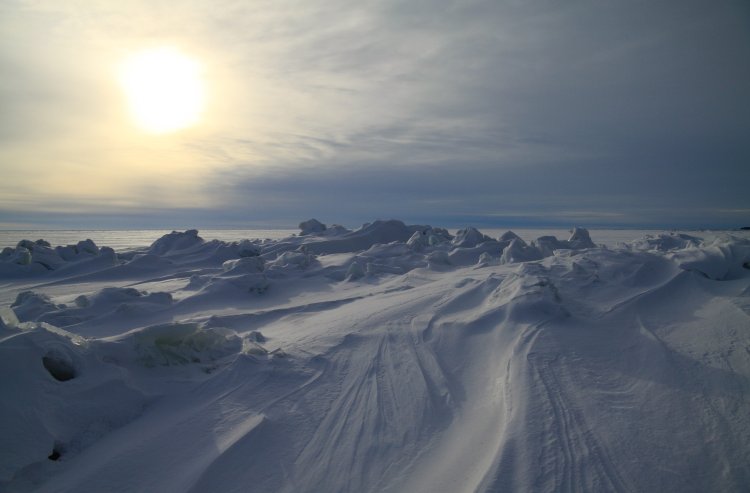Today, on May 21, Russia marks the Polar Explorer’s Day. The holiday has been established in recognition of the people who work on the North and South poles. The date is confined to the start of Soviet high-latitude polar expedition North Pole-1. The members of legendary expedition under the guidance of I.D. Papain landed on ice on May 21, 1937.
North Pole-1 became the world’s first drifting polar station. Its unique drifting allowed for obtaining valuable research data. The expedition was also the first to draw detailed maps of the Arctic Ocean’s bottom which made the navigation in this area easier for Russian submarines.
In our country, polar regions started being explored back in 19th century. January 28, 1820 will remain forever in the history of geographical discoveries as the date when Antarctic was discovered by Russian sailors – the crews of Russian ships Vostok and Mirny under the command of second-rank captain Faddey Bellingshausen and lieutenant Mikhail Lazarev.
Today, polar stations are working on both poles of our planet. As there is no land in North Pole area, drifting polar stations (the ones drifting on blocks of ice) are created there. In the Antarctic, polar stations are located on the land.
“The Antarctic stations have become a sort of embassies on ice,” professor Anna-Marie Brady, executive editor of The Polar Journal says, “The station is a sign of the state having interests in the Antarctic. A sort of status symbol.”
At present seven states claim the Antarctic territory: Australia, France, Norway, New Zealand, Argentina, Chile, and United Kingdom with the latter three countries contesting the territories of each other.
Russia’s Vostok, a unique polar station, is located in the very center of the coldest continent. Russian polar explorers work here in extreme conditions: long polar nights, extremely low temperature (-55°C and colder), the air humidity almost equal to zero. However, it does prevent Russian scientists from exploring the Antarctic, as they have been carrying out studies there for over 60 years. The personnel of Vostok station conduct geophysical, meteorological, medical and other research. Thanks to our scientists, a large relic subglacial lake was discovered in the Antarctic in 1996. It received the name of Vostok. The key to understanding the mechanisms of origin of life on the Earth and other planets and satellites lies in studying unique Vostok lake covered by thick ice and isolated from the rest of the world.
For carrying out the research in Antarctic, Russian glaciologists studying the lake were decorated with awards including Order for Merits to the Fatherland, Order of Naval Merit, Order of People’s Friendship and Badge of Honor. The work goes on.
Photo: pelson / 123RF






















